The final members’ Day of the 52nd Parliament included a few notable moments.
And one historic one. The very first bill to be sponsored by multiple MPs and from multiple parties.
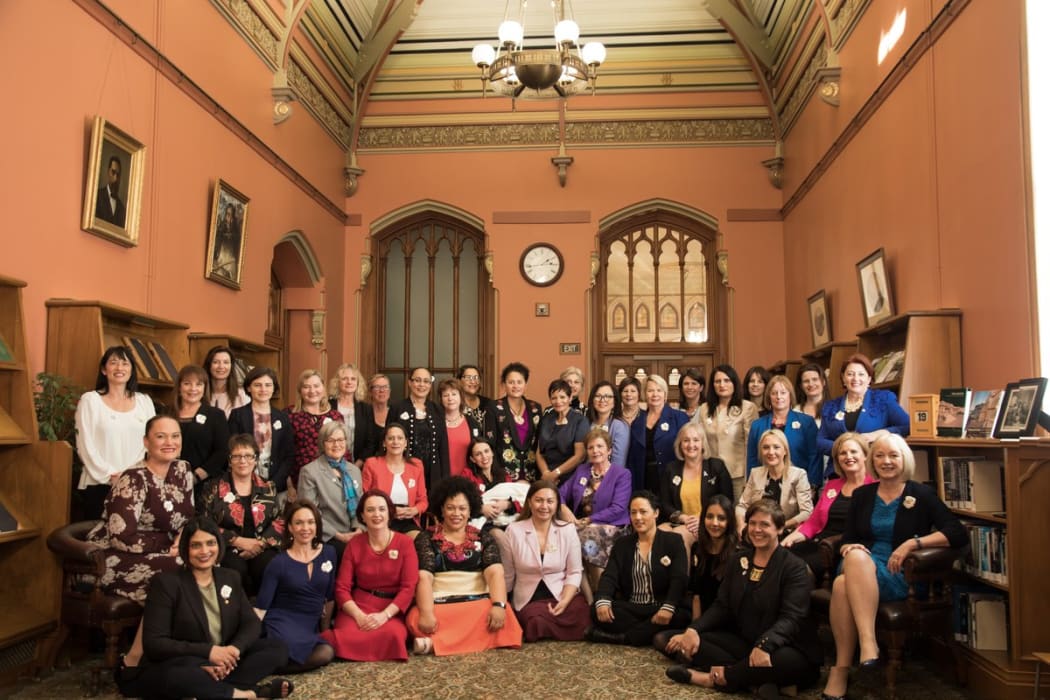
Louisa Wall noted that with nearly 40% of MPs being women they now have the numbers to cooperate on law with particular relevance to women. Photo: Supplied / Office of the Clerk
The notable:
- Ginny Andersen’s Bill that will afford bereavement leave to those who suffer a miscarriage or stillbirth passed a second reading with wide support and looks very likely to become law. So, more to come on that another time.
- A bill to overturn the waka-jumping legislation passed a first reading in an unusual alliance between National and the Green party. Ditto.
- A bill to criminalise the uploading of revenge porn began its first reading. Ditto.
The historic:
For the first time a bill passed successfully through a third reading with multiple sponsors. In other words it was shepherded by a number of different MPs - something that is usually against the rules. And to boot those sponsors were from four different parties.
It will become law once it’s gained royal assent from the Governor General (which is always pretty prompt).
The Crimes (Definition of Female Genital Mutilation) Amendment Bill is in the names of Jenny Marcroft from New Zealand First, Priyanca Radhakrishnan from Labour, Golriz Ghahraman from the Greens and Jo Hayes from National.
Here’s how they outlined the Bill in debate.
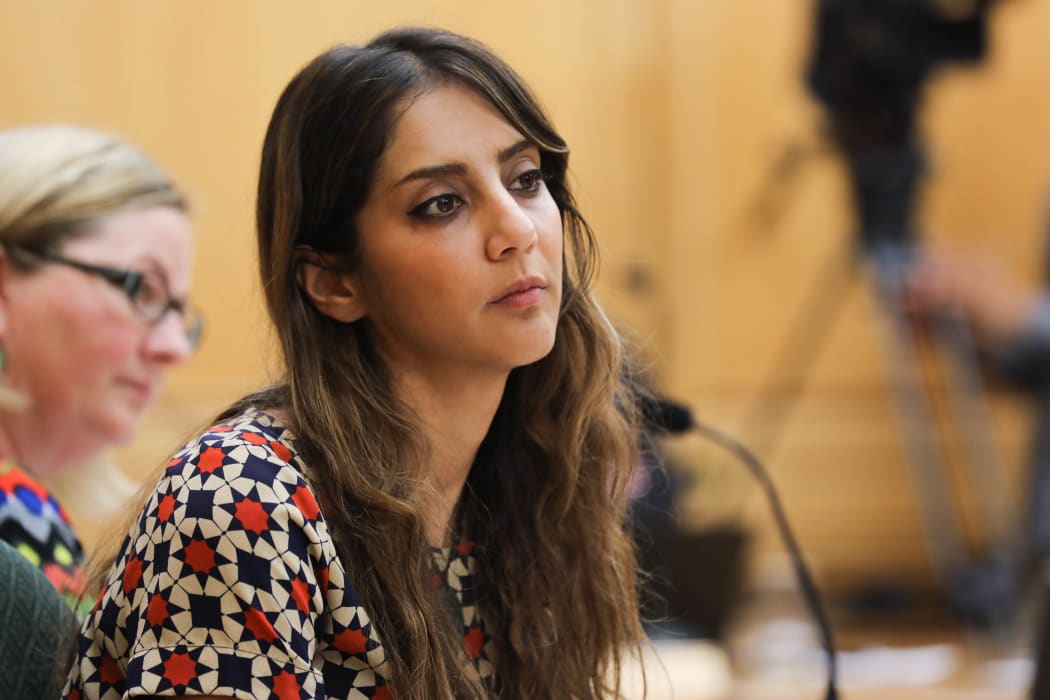
Green MP Golriz Ghahraman in committee Photo: VNP / Daniela Maoate-Cox
First Golriz Ghahraman with some overview:
“This bill amends the Crimes Act 1961 to insert a definition of "female genital mutilation" that is holistic and up to date. Our laws were outdated in that we only criminalised what, I guess, is now known as the worst kind of female genital mutilation.
"We've learnt now, through the education and the generosity of the communities that have come to us to speak to us about what this practice truly entails, that there are forms that we would, certainly under standing law, call 'lesser', 'less serious', 'minor', or 'ceremonial', and we know that the harm is still so immense on both the psyche of the young girls and women who are undergoing this type of harm but also physically. Others have spoken about the intense pain, the scars, and the sense of degradation that stays with women and girls.”
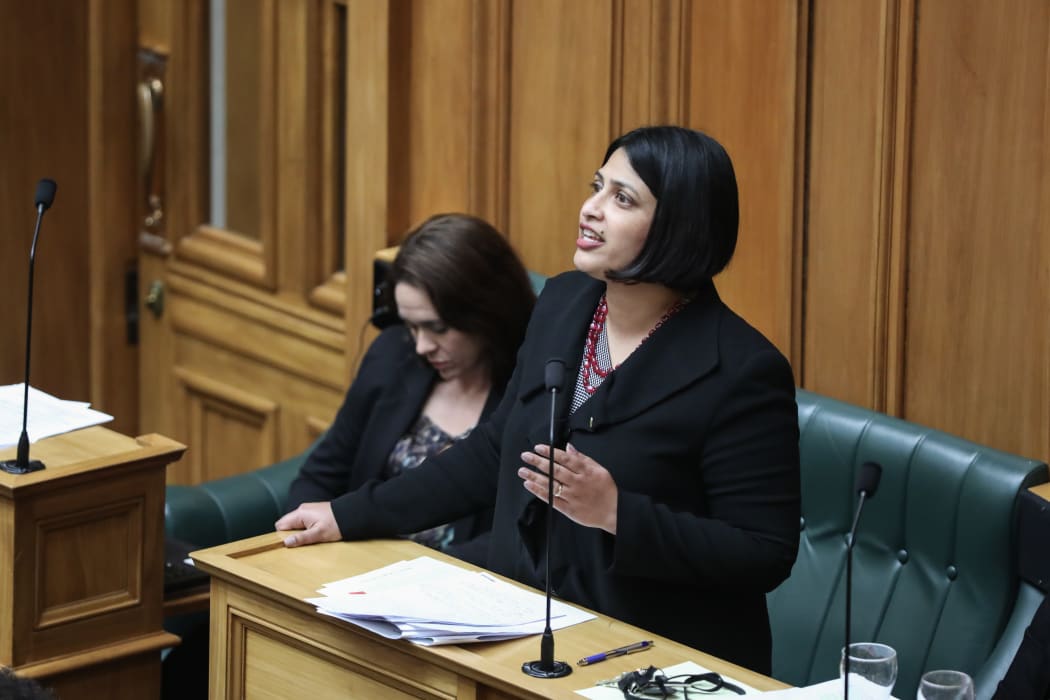
Labour MP Priyanca Radhakrishnan speaking for the Domestic Violence Victims Protection Bill Photo: VNP / Phil Smith
Priyanca Radhakrishnan with the details:
“Currently under New Zealand law, it's largely excision that is criminalised, but there are four different types: type one, which is often referred to as clitoridectomy, which is the partial or total removal of the clitoris; type two, which is often referred to as excision, the partial or total removal of the clitoris and the labia minora; type three, which is often referred to as infibulation—the narrowing of the vaginal opening through the creation of a covering seal; and type four, which includes all other harmful procedures.
"It includes pricking, piercing incising, scraping, and cauterising the genital area. And that's what the expansion of the extension of the definition of "female genital mutilation" in the Crimes Act seeks to do.
“This also includes arranging for a child to be sent or taken outside of New Zealand with the intent for FGM to be performed. And it also makes very clear that consent is not a defence to this.”
Priyanca Radhakrishnan on things that didn’t make it into the Bill:
“There were a few matters that lay outside the scope of this bill that did come up and were raised by submitters, and those were issues around male circumcision and also intersex surgeries that are performed, often on children without their consent.
"Those were considered by the Health Committee but were considered to lie outside the scope of this bill. There was consideration, I guess, or acknowledgment that these are issues that require some further consideration and, potentially, legislation of their own. But including that in this legislation would be a significant policy change or a step outside of what this bill intended to do.”
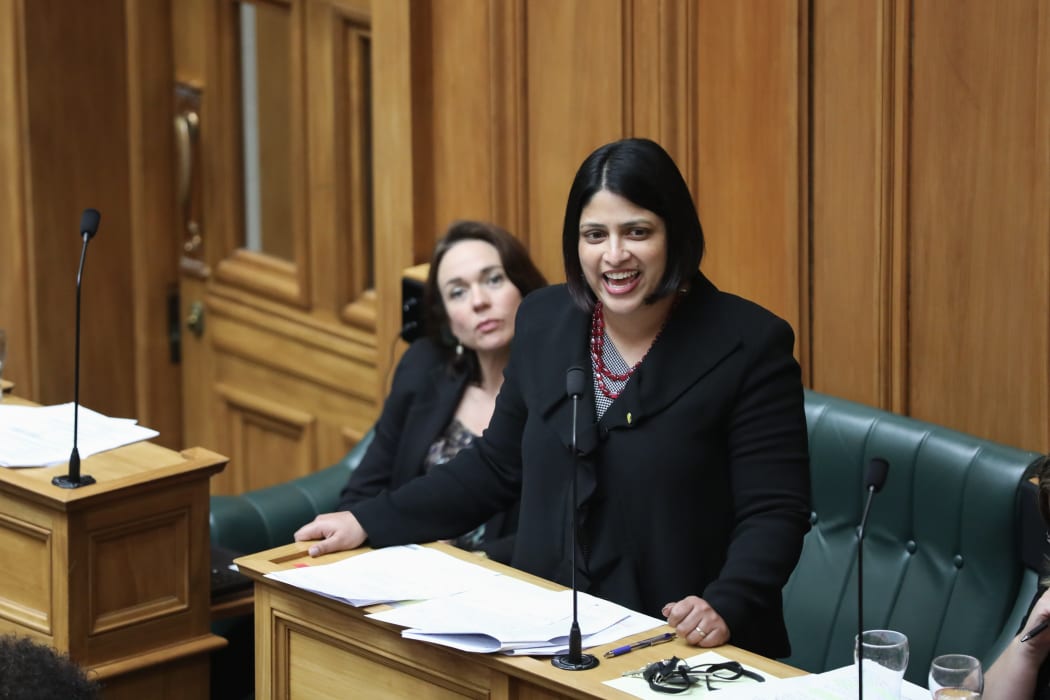
Labour MP Priyanca Radhakrishnan, not quite done yet... Photo: VNP / Phil Smith
Priyanca Radhakrishnan with some societal context:
“We need to be very clear, as I said, that this is not a religious or a cultural issue per se; it's a women's rights issue. It's a human rights issue that's often perpetrated under the guise of culture or religion. But there's no justification for it, and as we've seen from the work that FGM Education and others like refugees and survivors have done, we have seen that there are many from within affected groups who stand against it as well.
"We need to be careful, though, that we don't vilify specific communities, because this causes them to feel further marginalised and further silences women who need support and those who are working within those communities towards change.”
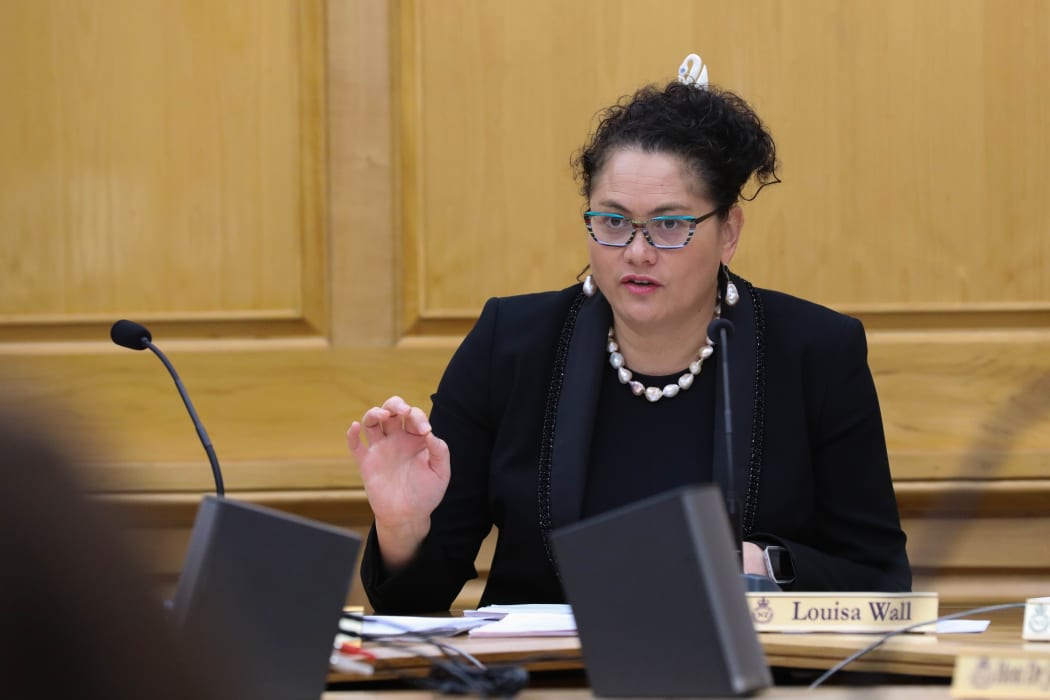
Labour MP Louisa Wall chairing a select committee Photo: VNP / Phil Smith
And context from Louisa Wall (who chaired the Health Select Committee):
“We have now ensured that all forms of FGM are illegal in New Zealand, and that will mean that we are sending a clear signal that FGM in any form is the subjugation of women. It is sexual violence, it is sexual abuse, and it is sexual exploitation, because fundamental to the practice actually is the labelling of women as sexual things for men.
"That was the whole intention of it: take away women's sexual pleasure; she only has one role, and that is to be a sexual object for her husband. So we're rejecting that, and in doing so, we're changing the lives of women and girls.”
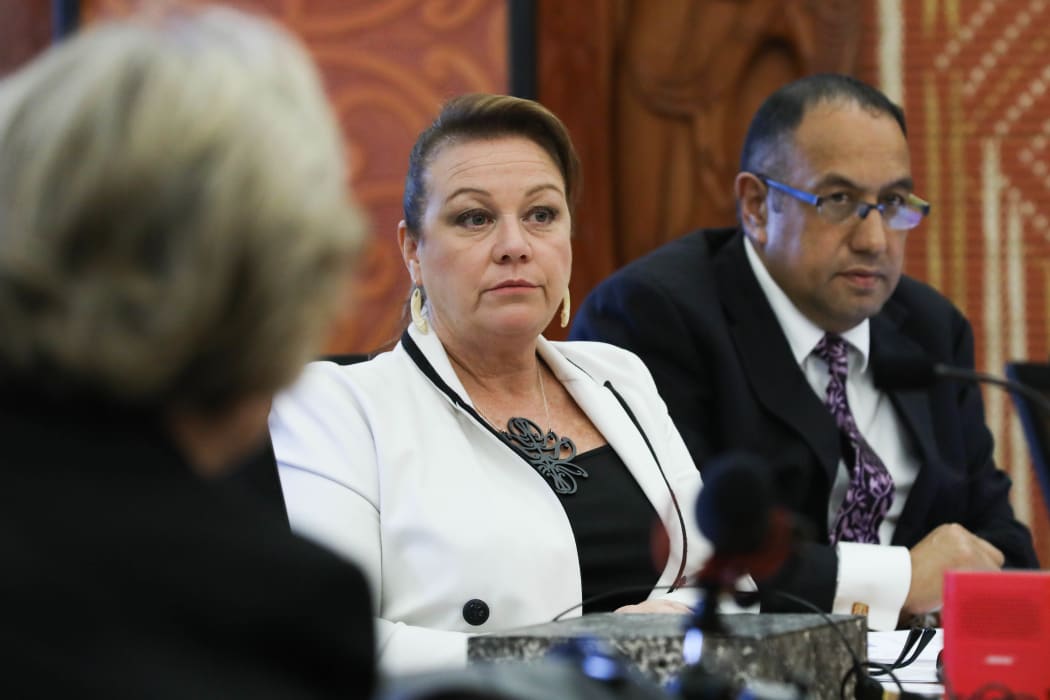
New Zealand First MP Jenny Marcroft on the Maori Affairs Select Committee Photo: VNP / Phil Smith
And Jenny Marcroft with the credits:
“The most important people to be acknowledged in this process are those women and girls who are affected by this practice. Thanks also to the groups and individuals who appeared before the select committee. The committee received 28 submissions and heard oral evidence from nine submitters in Wellington.
"Thanks to FGM Education Programme, Ayan Said, Nikki Denholm, and the Somali community. We heard from the Canterbury District Health Board, the Auckland Women's Health Council, the Humanist Society of New Zealand, Family Planning, the Human Rights Commission, and the Intersex Trust Aotearoa.
"Acknowledgement too, to the Ministry of Health and the Ministry of Justice who made their contributions and advised the committee. I'd like to thank the health select committee chair, Louisa Wall for her advocating this bill.
"Also, too, it must be noted, the Deputy Speaker, Hon Anne Tolley, in the chair tonight, for your work with the Commonwealth Women Parliamentarians (CWP) and helping us to bring this bill to the House.”
“I'd like to acknowledge also the importance of the bill as evidence of the ability of MPs to actually work well collaboratively from both sides of the House together: Jo Hayes from the National Party, Priyanca Radhakrishnan from Labour, and Golriz Ghahraman from the Greens, who join me in working together as part of the Commonwealth Women Parliamentarians New Zealand group, as we fondly call it CWP.”


